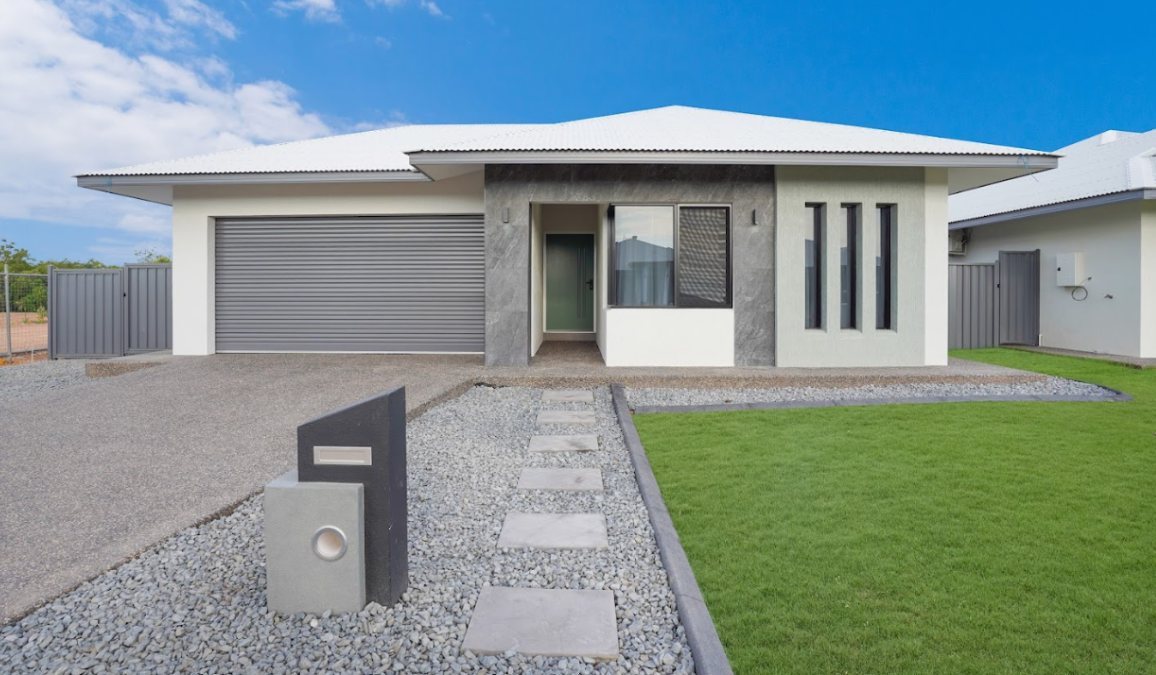
Everything You Need To Know About Personal Loans In Australia
September 11, 2023


Finance Focus – September
September 18, 2023Are you looking to apply for a home loan in Australia? Being in the industry for over 30 years, our team has compiled everything you need to know about applying for a mortgage into one definitive guide.
Have a read, and at the end, if you’re in need of further information or support, reach out to our team today. We’re award-winning brokers who have helped hundreds of families get into the market.
How do Home Loans work in Australia?
In Australia, home loans, also known as mortgages, are financial agreements where a lender provides funds to a borrower for purchasing a property. The borrower repays the loan amount over a set period, usually up to 30 years, through monthly installments that include both the principal amount and interest. Home loan terms, interest rates, and repayment options can vary based on factors like the borrower’s creditworthiness, the property’s value, and prevailing market conditions.
It’s essential to explore various loan options and understand the terms to make an informed decision that suits your financial goals.
Which Australian bank has the lowest Home Loan interest rate?
Banks change their rates all the time, which makes it difficult for us to specify which bank currently has the lowest interest rate. However, as of August 2023, the banks more commonly known for lower base interest rates include AMP Bank, the Bank of Queensland, ING Bank & UBank.
While every bank has a base interest rate, it’s important to note that the actual interest rate you will be offered may be higher depending on your individual circumstances, such as your credit score and the amount of loan you are applying for.
What are the different types of Home Loans?
There are many different types of home loans available in Australia, each with its own advantages and disadvantages. Some of the most common types of home loans include:
- Variable rate home loans. The interest rate on these loans fluctuates with the market, so your monthly repayments may go up or down. This type of loan offers more flexibility, but it can be risky if interest rates rise.
- Fixed rate home loans. The interest rate on these loans is fixed for a set period of time, usually between one and five years. This type of loan offers more stability, but it can be more expensive than a variable rate loan if interest rates fall.
- Split rate home loans. These loans combine a fixed rate with a variable rate. You can choose to have your principal and interest payments on a fixed rate, while your interest only payments are on a variable rate. This can be a good option if you want the stability of a fixed rate for your principal and interest payments, but you also want the flexibility of a variable rate for your interest only payments.
- Interest-only home loans. With this type of loan, you only repay the interest on the loan each month. The principal amount remains outstanding until the end of the loan term. This type of loan can be useful if you are struggling to make your monthly repayments, but it can also be more expensive in the long run.
- Construction home loans. These loans are designed to help you finance the construction of a new home. They typically have a variable interest rate and offer a drawdown facility, which allows you to access the funds as needed during the construction process.
- Bridging loans. These loans are short-term loans that are used to bridge the gap between the sale of your old home and the purchase of your new home. They typically have a high interest rate, so they should only be used as a last resort.
How much deposit do you need for a house?
Typically, the minimum deposit required for a house in Australia is 10% of the property value. However, most lenders prefer a 20% deposit. If you have a 20% deposit, you will not have to pay Lender’s Mortgage Insurance (LMI), which is an insurance that protects the lender if you default on your loan.
There are also some government schemes in Australia that can help buyers apply for a home loan with a lower deposit. For example, the First Home Guarantee (FHG) allows you to put down a deposit of 5% without having to pay LMI. There is also the Family Home Guarantee & the Regional Home Guarantee Schemes available for eligible candidates.
What’s the difference between a Home Loan and a Personal Loan?
The main difference between a home loan and a personal loan is the purpose of the loan. A home loan is used to purchase a home, while a personal loan can be used for any purpose.
Feature | Home Loan | Personal Loan |
Purpose | To purchase a home | For any purpose (i.e. car, renovation, holiday, wedding) |
Collateral | The home being purchased | Not required |
Loan amount | Up to 80% of the property value | Up to $300,000 |
Loan term | Up to 30 years | Up to 5 years |
Interest rate | Lower than personal loans | Higher than home loans |
Fees | Lender’s mortgage insurance (LMI) may be required | Other fees may apply |
What is the easiest loan to get for a house?
There is no one-size-fits-all answer to this question, as the easiest loan to get for a house will vary depending on your individual circumstances and credit history.
If you’re in a tight financial situation, there are still options to secure a loan with flexible repayments or low deposit requirements. You can also take advantage of government funding to help you get into the market. Talk to us for an assessment of your situation and guidance choosing the right loan for you.
Home Loans vs Commercial Property Loans
A home loan is used to purchase a home for residential purposes, while a commercial property loan is used to purchase a property for business purposes.
Feature | Home Loan | Commercial Property Loan |
Purpose | To purchase a home for residential purposes | To purchase a property for business purposes |
Collateral | The home being purchased | The property being purchased |
Loan amount | Up to 95% of the property value | Up to 65% of the property value |
Loan term | Up to 30 years | Up to 20 years unless secured by residential property |
Interest rate | Lower than commercial property loans | Higher than home loans |
Fees | Lender’s mortgage insurance (LMI) may be required | LMI is not typically available |
What type of loan is better for first time buyers?
It is important to speak to a mortgage broker to find out what kind of loan is right for you. We will be able to assess your individual circumstances and recommend the options available.
There are two government schemes that can help first home buyers get a loan with a lower deposit:
- First Home Loan Deposit Scheme (FHLDS). This scheme allows first home buyers to purchase a property with a deposit of as little as 5%, provided they meet certain eligibility criteria. The government will guarantee 15% of the loan, which means that you will not have to pay Lender’s Mortgage Insurance (LMI).
- Home Guarantee Scheme (HGS). This scheme is similar to the FHLDS, but it is available to first home buyers in regional areas. The government will guarantee up to 25% of the loan, which means that you will not have to pay LMI.
Home Loan vs Loan against Property
A home loan is a loan that is used to purchase a home, while a loan against property is a loan that is secured by an existing property.
A home loan is typically used to purchase a home for residential purposes, while a loan against property can be used for any purpose. For example, you could use a loan against property to consolidate debt, finance a business, or fund a major expense.
Home loans also have longer loan terms than loans against property. This is because homes are typically considered to be a longer-term investment. Other types of property, such as investment properties, may be bought and sold more frequently.
LMI is not typically required for loans against property because the existing property is being used as security. However, some lenders may require LMI if the borrower has a low deposit or a poor credit history.
Talk to us today for further understanding around loans against property.
Can I use my super for a house deposit?
Yes, you can use your superannuation (super) for a house deposit in Australia, but only under certain conditions.
The First Home Super Saver Scheme (FHSSS) allows you to make voluntary contributions to your super fund and then withdraw them to help you buy a home. You can contribute up to $15,000 per financial year, and you can withdraw up to $50,000 in total.
To be eligible for the FHSSS, you must:
- Be a first home buyer
- Be under the age of 60
- Have an Australian superannuation account
- Not have previously used the FHSSS
You can withdraw your FHSSS contributions and associated earnings at any time, but you will have to pay a 25% contribution charge. This is a one-off charge, and it is not tax-deductible.
If you are considering using your super for a house deposit, it is important to speak to a financial advisor to get advice on whether it is the right decision for you.
Here are some of the pros and cons of using your super for a house deposit:
Pros:
- You can get a larger deposit, which can help you get a better interest rate on your home loan.
- You can avoid paying Lender’s Mortgage Insurance (LMI) if you have a low deposit.
- You can use your super money to buy a home sooner.
Cons:
- You will have to pay a 25% contribution charge on your FHSSS withdrawals.
- You will reduce the amount of money in your super, which could affect your retirement savings.
- You may not be able to access your super money if you lose your job or become ill.
Ultimately, the decision of whether or not to use your super for a house deposit is a personal one. You should weigh up the pros and cons carefully before making a decision.
Home Loans vs Gold Loans
A home loan and a gold loan are both secured loans, which means that the lender has collateral in case you default on the loan. However, there are some key differences between the two types of loans.
A home loan is a loan that is secured by a property. The property is used as collateral, which means that the lender can repossess the property if you default on the loan. Home loans typically have lower interest rates than gold loans because they are considered to be a lower-risk investment.
A gold loan is a loan that is secured by gold jewelery. The gold jewelery is used as collateral, which means that the lender can take the gold jewelery if you default on the loan. Gold loans typically have higher interest rates than home loans because they are considered to be a higher-risk investment.
Can I buy a house on Centrelink payments?
It is possible to buy a house on Centrelink payments, but you may find it more challenging than if you had a regular income. Centrelink income is usually acceptable in conjunction with PAYG or self-employed income. Don’t worry, we can help you explore your options!
There are a few things you will need to consider:
- Your deposit: You will need a deposit of at least 20% of the property value to avoid paying Lender’s Mortgage Insurance (LMI). This can be difficult to save up if you are on Centrelink payments.
- Your income: You will need to show that you have a stable income that can afford the monthly repayments. Centrelink payments are considered to be a regular income, but you may need to provide other evidence, such as a letter from your Centrelink provider stating your expected payments.
- Your credit score: Lenders will also look at your credit score when assessing your application. A good credit score will make it more likely that you will be approved for a loan.
Remember, you can also take advantage of government schemes to help you buy a house on Centrelink payments. Speak to us today to learn more.
Which bank is best for Home Loans?
The right bank for house loans will vary depending on your individual circumstances and needs. It is best to speak to a mortgage broker, and together consider the following factors when choosing a bank for a home loan:
- Interest rates: The interest rate is the cost of borrowing money. The lower the interest rate, the cheaper the loan may be.
- Fees: There are a number of fees associated with home loans, such as application fees, establishment fees, and monthly account fees. It is important to compare the fees charged by different lenders.
- Features: Some lenders offer features such as offset accounts, redraw facilities, and flexible repayment options. These features can be helpful, but they may also come with additional fees.
- Your circumstances: Your individual circumstances, such as your credit score, deposit amount, and Loan-to-Value (LVR), will affect the interest rate you are offered. It is important to choose a lender that understands your circumstances and can offer you a competitive deal.
Can single mums on Centrelink buy a house?
Yes, it is possible for anyone in a tough financial position to still buy a house. However, it just may be more challenging and require close and careful work with a mortgage broker.
Here are some other things that single mums (and dads) on Centrelink can do to improve their chances of buying a house:
- Save up for a deposit: The more money they can save for a deposit, the less they will need to borrow and the lower their monthly repayments will be.
- Improve their credit score: A good credit score will make it more likely that they will be approved for a loan and get a better interest rate.
- Get pre-approved for a loan: This will give them an idea of how much they can borrow and what their monthly repayments will be.
- Shop around for a suitable deal: There are many different lenders offering home loans, so it is important to compare interest rates, fees, and other features. We can help you do that at Parrington Finance.
- Be prepared to provide extra documentation: Lenders may ask for extra documentation, such as proof of income and expenses.
Can a Centrelink pensioner get a Home Loan?
Yes, a Centrelink pensioner can get a home loan, but they should speak to a mortgage broker to establish which home loan they should apply for and what help they can receive from the government
The Home Equity Access Scheme (HEAS) is currently available in Australia, which allows pensioners to access the equity in their home to finance home improvements, renovations, or other expenses. Talk to us today to find out more.
Got more questions about how to apply for a home loan? If your question hasn’t been answered, or you’re ready to start your journey to home ownership, talk to our experienced mortgage brokers today.
With no cost and no obligation, there are only benefits to reaching out.



